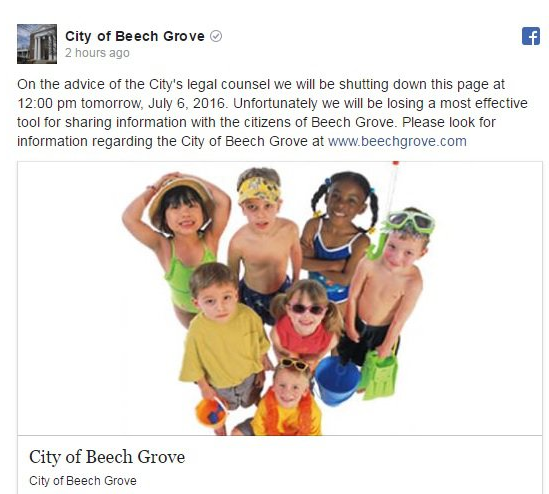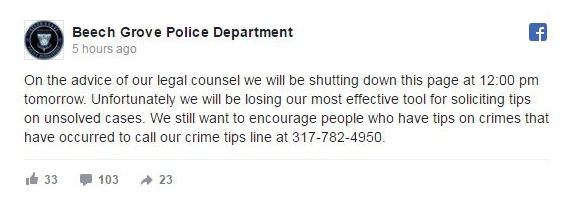Online reputation is important, and it is one that people are wanting to know more about. As news stories show that colleges, insurance companies, hiring managers, and employers are turning to social media monitoring for individuals, people are checking their online reputation and looking for a “quick fix” when it doesn’t look so good.
Along with this, companies have been created that offer help with “cleaning up” negative personal information online. They offer generalizations of how it is done, and provide services to delete negative information or personal information from online search results. Others will provide services to help you “push” negative results further and deeper into the search engines, assuring consumers that this will forever hide negative information.
Here’s what they’re not telling you:
It’s almost impossible to delete negative information: Why is this? For starters, there is a lot of information that can have negative aspects, such as a DUI record or something similar, that is public record and cannot be deleted. Other online content can potentially be made private, but cannot be deleted forever. This is especially true when content is shared by others who do not have strong privacy settings. Unless those people will remove it or change their privacy settings, it’s out there.
You can push content “down” in the search results, but it still exists: there are companies that offer help with building up content around an individual in hopes that this is what makes the first few pages of a search engine, and those seeking information on an individual won’t go much beyond that. Some of this is, in fact, good general advice – if you are job seeking for example, it is a good idea to build up your online reputation by creating accounts on social sites like LinkedIn. It’s not to hide any negative content, but instead to showcase skills and expertise related to that dream job.
However, posting content online in an attempt to push down negative content may backfire if not done correctly. Why is this? Companies will offer broad advice such as “comment on blog posts and news articles” in hopes that this content will hit the first pages of an online search. First, there’s no guarantee that these suggestions will result in the items being picked up at all in the search engines, never mind hitting the first page. Second, this type of content building, especially if done on behalf of an individual by a company they hire to help with online reputation management, results in a series of comments that are general in nature and do not add to the blog post they’re responding to, or offer insight into that individual’s perception, opinions, or insights. It turns into filler content.
If a potential employer, for example, is doing an online search and sees this type of filler content in excess, it doesn’t matter that they never found the negative content on the tenth page – what they did see may give a negative perception of the person, or perhaps a perception that they spend an inordinate amount of time online and wonder if they have the focus to commit to their job. It’s just a simplified example, but drives home the point that simply commenting and adding comments all over the internet is not the way to go about building a positive online reputation.
First page or tenth, technology makes it easy to find: one thing these companies are not telling you is that technology has made life easier for those using social media monitoring for individuals. They are no longer using simple Google searches, but instead turning to software programs that will collect ALL public data on an individual. So it’s a little outdated to tell consumers that you can “stuff” negative content in the search engines – search engines are no longer needed.
So, what should I do?
If you are worried about your online reputation and don’t know how to fix it, it may be tempting to turn to a company who says they can help. After learning more though, you can see that this may not be your best bet. There are things you can do that will legitimately help you build an online reputation you can be proud of.
Take a close look at your online reputation from a few different avenues: do an online search, but not just Google – search for your name, city, and state on Google, Yahoo, Bing and other search engines out there. The results are a bit different depending on which search engine you use, so it is helpful to look at a variety of results. See something you don’t like? Make a note of it and where it shows up in the search engines, as well as what type of site it is (blog, online news article, government based public records, etc).
Step it up a notch by ordering an online reputation report: there are many companies who will provide you with a report detailing your online reputation. These are fairly painless and do not take long – simply fill out a form and provide some information about yourself, and companies will use the same software that employers and insurance companies use when monitoring social media. This will show you what might be picked up if someone were to search for you.
Build your online profile slowly and purposefully: First, think about why you want to improve your online reputation. Are you in the process of a job search? Will you be graduating from college (or even high school) soon? Determine why you want to build up your reputation and that will help you figure out where to start.
If new employment is in your future, start a LinkedIn profile. This is a great way to showcase your work history and achievements that can go well beyond a resume. Better yet? Once you build your profile, make sure to share content regularly, interact with others, and join groups to share your thoughts and be active in your industry.
Take a look at your current social sites and clean them up. Check privacy settings, and make sure that posts or pictures that you wouldn’t want the world to see are behind secure privacy settings. Remember, online software programs that monitor social media can legally only collect public data – if it’s behind privacy settings, it won’t be picked up.
Link your sites together. One way to build a strong online presence is to show the search engines how your sites connect. On your Facebook page, offer a link to your Twitter account. If you’re a blogger (personally or professionally) or have an Etsy page, put links to those sites on your LinkedIn account. The search engines love this and may result in your positive content showing higher in the search results.
Realize that negative content is not the end of the world: If it’s something from a long time ago, but you’ve done great things since then, others will not put as much weight on that negative content. If they see ten good things have happened since that time, it should be okay. This is why it’s good to build your online presence in the right way instead of a lot of fluff to cover things up.
Be wary of a company that says they can delete or hide negative information. A lot of that information is outdated and simply not true. Be aware of your online profile and continue to post great content that highlights who you are, and it will all come together.






